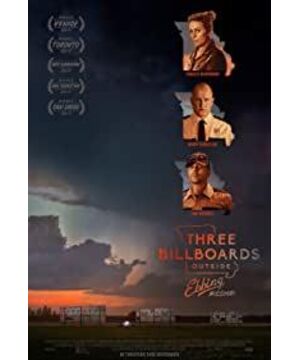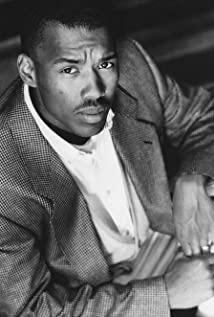A mother erected three billboards to avenge her daughter who was raped and killed.
This sentence is enough to summarize the story line of the movie. Mother Mildred ran out of savings and bought three billboards in remote locations. The billboard was written with questions humiliating the police for ineffective handling of the case. Until the middle of the movie, the sheriff worked hard to get his mother to remove the billboard. Other police, as well as doctors and priests, are putting pressure on the mother. There are enough films that accuse social injustices. The lawyers in "The Defender" insisted on defending in spite of threats. The reporters in "Focus" disregarded pressure and exposed the ugliness. We look forward to the continued pressurization of the movie, and hope that the residents of the small town can uphold justice, look forward to cheering up the case, and look forward to the murderer being brought to justice. At the end of the movie, with the subtitles "The movie is based on a real story", we might have a sore nose and sigh:
The cycle of cause and effect, retribution is unhappy.
It was with this expectation that the audience chose the mother's camp from the beginning. The mother is full of misfortune labels, enough to evoke sympathy. She had two children. Her daughter had just died in vain, but her son was bullied at school because of the billboard. Her husband abandoned his wife and son because of a young girl. She is a victim of domestic violence and she has a poor income. What is even more impressive is the strength of this mother. She fought back with a billboard. She put pressure on the police in the media. She used violent methods to block anyone's persuasion. In addition to misfortune and toughness, the actor McDormand also endowed his mother with richer personality traits: helplessness when extinguishing fire, remorse bursting when he missed his daughter, and naughty laughed at his son.
I wish this mother could win.
However, the mother's persistence did not bring victory. While the billboards vent the demands of the victims, they also put pressure on the town. Everyone must choose a camp and then fire each other. The suicide of Sheriff Willoughby became the fuse. Although he doesn't portray much of Willoughby, he is clearly a sheriff who is popular with the residents of the town. He seems to have a happy life, but he suffers from cancer. Facing the billboard, Willoughby finally committed suicide. Dixon, Willoughby's subordinate, was so outraged that he beat up the advertiser and threw it downstairs from the second-floor window. The mother insisted on giving a tooth for a tooth and carrying a self-made Molotov cocktail, which not only burned the police station, but also seriously injured Dixon. On her mother's pursuit of justice, violence escalated step by step, making right and wrong more and more blurred. What Willoughby said to Mildred revealed the truth. There are no witnesses in this case, and the murderer has no previous convictions, so he has no clue at all.
The plot develops and more information appears, making right and wrong become more blurred. The daughter was raped and killed precisely because the mother refused to drive her daughter out. Putting this on the Internet may trigger a round of discussion about "both parents are harm." Sheriff Willoughby did not handle the case well, but secretly donated the billboard expenses. Constable Dixon was violent and brutal, but saved the rape and murder file in the fire. The audience discovered that there is no absolute for good and evil. The people in the play live in the same town and are trapped in the same case. In everyone's eyes, right and wrong are very clear. But looking down on the town from the perspective of God, everyone is bound by the persistence of arguing for right and wrong. The people in the play also gradually understood this truth, and built a rare trust at the cost of countless pains.
This movie is full of apocalyptic significance. In today's era of diversified careers, life experiences may vary greatly. Some people have been white-collar workers for a lifetime, hiding in the cubicle every day to sort out documents. Some people have made a lot of money for a lifetime in feasting and feasting. The mutual understanding is inherently commendable. The media always wants to simplify the problem. Seemingly neutral news reports, secretly entrained opinions. The overwhelming online commentary roughly summarized everything into mechanical cause and effect. Thus, the carnival spectators, without trial, pushed the most conspicuous suspect to the guillotine of public opinion, just as a billboard pushed Willoughby to the guillotine. Everyone is satisfied from this process. After all, everyone wants "causal cycle, retribution is unhappy", and everyone does not have so much time to reach an understanding.
As a result, there are many innocent victims.
At the end of the story, the director concocted a possible rapist and murderer. Mildred decided to kill the suspect with Dixon. Violence escalated again, and the refreshment of karma rose again. But in the car, both of them revealed a hint of uncertainty. Who knows the truth behind the suspect.
View more about Three Billboards Outside Ebbing, Missouri reviews











